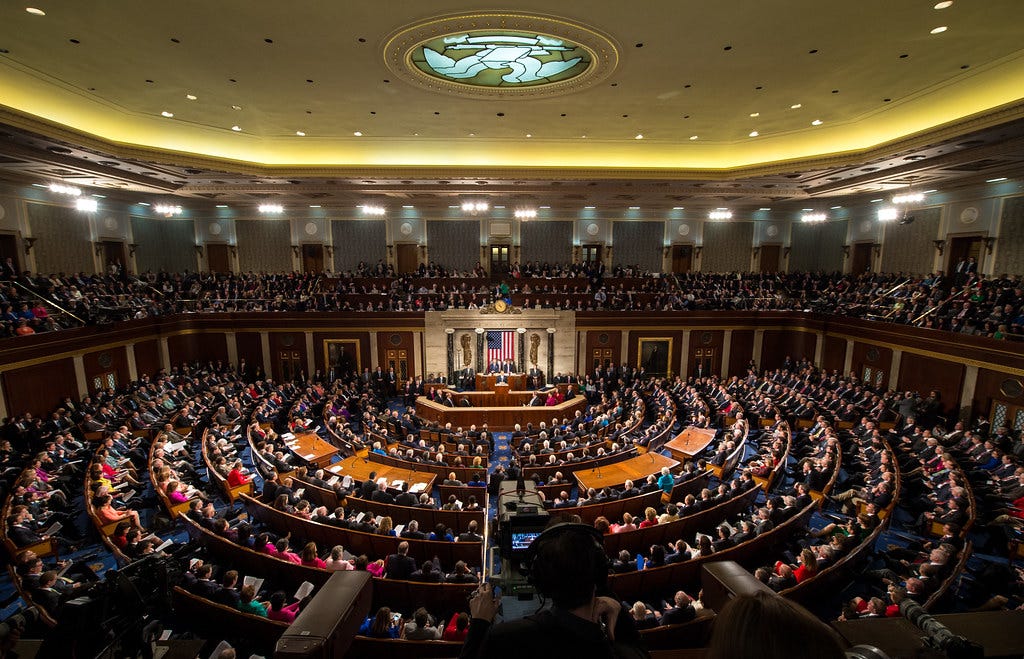How to respond to yesterday - the easy way or the hard way?
We’ve let social media divide us. We’ve allowed the loudest voices to command us. We’ve surrendered to our bubbles and the comfort of knowing we’re right.
Housekeeping
How are you responding to yesterday’s events? What do you think they mean for Oregon? Leave a comment below!
Tell us what voices we’re missing here. Send kfraz@berkeley.edu recommendations for contributors.
Now to the post!
Kevin Frazier edits The Oregon Way between Zoom classes at UC Berkeley School of Law. He graduated from the University of Oregon in 2015 before working in state politics and, later, starting Passport Oregon.
One easy way to respond to yesterday’s events at the Capitol is to view them in a narrow timespan, through your own partisan lens, and to explain them in words we’ve all been coached to use. For example:
a bunch of racist, xenophobic, Trump-loving white folks tried to destroy our democracy and thwart the peaceful transition of power, so it’s time to double down on (1) decimating the Republican Party and (2) making sure that anyone with a D next to their name wins in 2021, 2022, 2023, and, undoubtedly, 2024.
It’s easy to type those words.
It feels good to identify an enemy and plot a comprehensive elimination of their electoral chances.
It’s calming to reduce an unprecedented and seemingly inexplicable series of events to one run-on sentence.
This is the easy way because it taps into all of the things that our brain steers us toward: tribalism, reductionism, and confirmation bias.

Sure there’s some truth to the easy way. Those kernels of truth were correctly called out and identified by a broad range of individuals. In the immediate wake of the news yesterday, people across the political aisle, including our own Allen Alley, rightfully condemned the seditious acts and decried a despicable breach of our political norms.
For all of us, watching those illegal attacks unfold was heartbreaking and gut-wrenching, myself included.
Eight years ago, I was a pimpled intern leading tours around the Capitol. When I guided visiting Oregonians around those halls, I couldn’t help but beam. Here I was—just a freshman at a state school in a valley no one in D.C. had ever heard of and everyone mispronounced—walking in the footsteps of Kennedys, showing Oregonians the Hatfield Tree, and taking tram rides with sitting senators.
My West Wing dream seemed to be a reality. Over the last eight years, the nightmare lurking behind that dream has come out of the shadows and into our daily lives. Children separated. Families evicted. Communities on the brink of complete financial ruin. All the while, our government stuttered, stammered, and skirted its responsibility.
So, of course, I would love to let my anger roil over, cloud my judgment, and blame yesterday and the past eight years since my internship on a small group of mad people.
The hard way — the way I aspire to — is to recognize that we’ve all played a part in our slide into chaos.
We’ve let social media divide us. We’ve allowed the loudest voices to command us. We’ve surrendered to our bubbles and the comfort of knowing we’re right. Whether or not we intended it, the result is that many among us—across the political spectrum—feel isolated, persecuted, and separated.
The hard way requires that we zoom out and see that we’ve all been complicit in letting things get this bad. We’ve assumed that the current system, with enough engagement, enough science, and enough good people, can eventually right itself. So we’ve poured our time, energy, and tears into making the current system work.
The hard way requires us all to demand more from one another and, especially, our elected officials.
What can we do for one another?
Step away from social media. These companies profit off our partisanship and benefit from our division. As long as they control our world and occupy our attention, we will be unable to break free of permanently seeing “others.”
Burst your own bubble. Try reading the news from the “other” side. Schedule a Zoom with someone with a different party affiliation, background, or belief system. Don’t be a passive player in a game that’s currently making us all losers.
Make politics local again. Our neighbors are struggling. Our small businesses are failing. Don’t let national news blind you from seeing the good you can do by just doing all you can for those in your neck of the woods.
What can we ask of our elected officials?
Remember who you represent, not just who voted for you. The current system encourages the latter, but we deserve the former.
Put people, not party, first. Hours every day should not be spent fundraising so that your team can do better. Every hour as an elected official should be spent coordinating community members, analyzing policies, and studying how to create more opportunities for folks currently struggling to get by.
Talk to us—all of us! Get off Twitter. Get off Facebook. Stop Twitching. Talk to us via Zoom and, when possible, in person. We deserve more than hashtags and soundbites. Our congresspersons should not be competing over who can gain the most followers (yes, they actually do that…).
The hard way has a lot of difficult steps. Will you join me and take them?
*******************************************
Send feedback to Kevin:
@kevintfrazier
Keep the conversation going:
Facebook (facebook.com/oregonway)
Twitter (@the_oregon_way)
Check out our podcast:
#114





